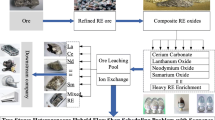Abstract
This paper proposes a hybrid estimation of distribution algorithm (EDA) with ant colony system (ACS) for the minimization of makespan in permutation flow shop scheduling problems. The core idea of EDA is that in each iteration, a probability model is estimated based on selected members in the iteration along with a sampling method applied to generate members from the probability model for the next iteration. The proposed algorithm, in each iteration, applies a new filter strategy and a local search method to update the local best solution and, based on the local best solution, generates pheromone trails (a probability model) using a new pheromone-generating rule and applies a solution construction method of ACS to generate members for the next iteration. In addition, a new jump strategy is developed to help the search escape if the search becomes trapped at a local optimum. Computational experiments on Taillard’s benchmark data sets demonstrate that the proposed algorithm generated high-quality solutions by comparing with the existing population-based search algorithms, such as genetic algorithms, ant colony optimization, and particle swarm optimization.
Similar content being viewed by others
References
Garey MR, Johnson DS, Sethi R (1976) The complexity of flow shop and job shop scheduling. Math Oper Res 1(2):117–129
Mühlenbein H, Paaß G (1996) From recombination of genes to the estimation of distributions I. Binary parameters. In: Ebeling W, Rechenberg I, Voight H-M et al (eds) Lecture Notes in Computer Science 1411: Parallel Problem Solving from Nature—PPSN 4. Springer, Heidelberg, pp 178–187
Dorigo M, Gambardella LM (1997) Ant colony system: a cooperative learning approach to the travelling salesman problem. IEEE T Evolut Comput 1:53–66
Santana R, Larrañaga P, Lozano JA (2009) Research topics in discrete estimation of distribution algorithms. Memetic Comput 1(1):35–54
Wang L, Fang C (2012) An effective estimation of distribution algorithm for the multi-mode resource-constrained project scheduling problem. Comput Oper Res 39(2):449–460
Jarboui B, Eddaly M, Siarry P (2009) An estimation of distribution algorithm for minimizing the total flowtime in permutation flowshop scheduling problems. Comput Oper Res 36(9):2638–2646
Blum C (2005) Ant colony optimization: introduction and recent trends. Phys Life Rev 2(4):353–373
Liao CJ, Juan HC (2007) An ant colony optimization for single-machine tardiness scheduling with sequence-dependent setups. Comput Oper Res 34(7):1899–1909
Srinivasa Raghavan NR, Venkataramana M (2009) Parallel processor scheduling for minimizing total weighted tardiness using ant colony optimization. Int J Adv Manuf Technol 41:986–996
Stützle T (1998) An ant approach to the flow shop problem. Proceedings of the 6th European Congress on Intelligent Techniques & Soft Computing, vol 3, Aachen, Germany, pp 1560–1564
Ying KC, Liao CJ (2004) An ant colony system for permutation flow-shop sequencing. Comput Oper Res 31(5):791–801
Mirabi M (2011) Ant colony optimization technique for the sequence-dependent flowshop scheduling problem. Int J Adv Manuf Technol 55(1–4):317–326
Ying KC, Lin SW (2006) Multiprocessor task scheduling multistage hybrid flow-shops: an ant colony system approach. Int J Prod Res 44:3161–3177
Alaykýran K, Engin O, Döyen A (2007) Using ant colony optimization to solve hybrid flow shop scheduling problems. Int J Adv Manuf Technol 35:541–550
Huang RH, Yang CL (2008) Ant colony system for job shop scheduling with time windows. Int J Adv Manuf Technol 39:151–157
Berrichi A, Yalaoui F, Amodeo L, Mezghiche M (2010) Bi-objective ant colony optimization approach to optimize production and maintenance scheduling. Comput Oper Res 37(9):1584–1596
Graham RL, Lawler EL, Lenstra JK, Kan AHGR (1979) Optimization and approximation in deterministic sequencing and scheduling: a survey. Ann Discrete Math 5:287–326
Rad SF, Ruiz R, Boroojerdian N (2009) New high performing heuristics for minimizing makespan in permutation flowshops. Omega 37(2):331–345
Taillard E (1990) Some efficient heuristic methods for the flow shop sequencing problem. Europ J Oper Res 47(1):65–74
Ruiz R, Stutzle T (2007) A simple and effective iterated greedy algorithm for the permutation flowshop scheduling problem. Europ J Oper Res 177(3):2033–2049
Taillard E (1993) Benchmarks for basic scheduling problems. Europ J Oper Res 64(2):278–285
Ruiz R, Maroto C, Alcaraz J (2006) Two new robust genetic algorithms for the flowshop scheduling problem. Omega 34(5):461–476
Zobolas GI, Tarantilis CD, Ioannou G (2009) Minimizing makespan in permutation flow shop scheduling problems using a hybrid metaheuristic algorithm. Comput Oper Res 36(4):1249–1267
Peace GS (1993) Taugchi methods: a hands-on approach. Addison-Wesley, Reading, MA
Rajendran C, Ziegler H (2004) Ant-colony algorithms for permutation flowshop scheduling to minimize makespan/total flowtime of jobs. Eur J Oper Res 155(2):426–438
Acknowledgements
This paper was supported in part by the National Science Council, Taiwan, ROC, under the contract NSC 100-2221-E-004 -004. The authors are grateful to the anonymous referees for their constructive comments that have greatly improved the presentation of this paper.
Author information
Authors and Affiliations
Corresponding author
Rights and permissions
About this article
Cite this article
Tzeng, YR., Chen, CL. & Chen, CL. A hybrid EDA with ACS for solving permutation flow shop scheduling. Int J Adv Manuf Technol 60, 1139–1147 (2012). https://doi.org/10.1007/s00170-011-3671-1
Received:
Accepted:
Published:
Issue Date:
DOI: https://doi.org/10.1007/s00170-011-3671-1




